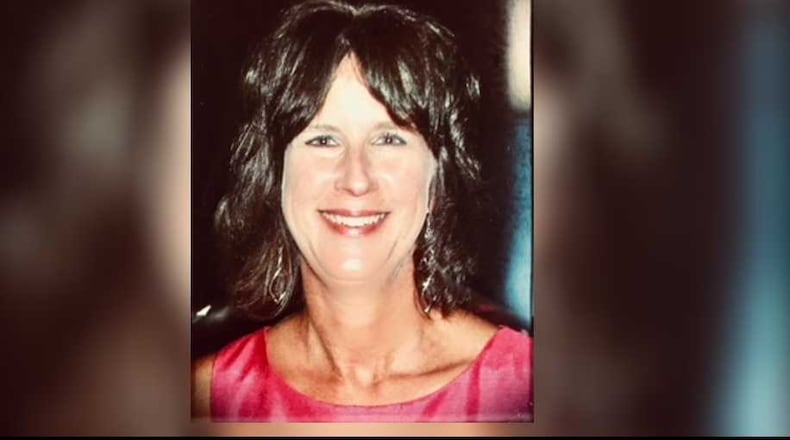EDITOR'S NOTE: A "cold case" is a criminal investigation where all leads have been exhausted and the case remains unsolved. This story is one in an occasional series on unsolved homicides and missing person cases from around the state. To read more cold cases, go to myAJC.com/coldcases/
By most accounts, Edith Carole Sheffield lived a good life.
A longtime bank teller in South Georgia’s Coffee County, Sheffield, 49, was a churchgoer and didn’t associate with “seedy characters.”
“Everybody knew her, and she had good moral turpitude and a fabulous reputation in the community,” said Mark Pro, special agent in charge of the GBI’s Douglas office.
That’s why it took her community months to come to grips with the news that someone killed Sheffield, a well-liked wife, mother and grandmother, on Jan. 18, 2013.
She was shot multiple times in the head with a shotgun and left in her home in the small town of Braxton. The house was then set on fire, Pro said.
Sheffield’s body was discovered the next day as investigators combed through the heavily damaged home, he said.
According to initial reports, dental records were used to identify her body.
No arrests have been made in the almost five years since her killing, Pro said.
“Are we close to solving the case?” he said in a recent interview with The Atlanta Journal-Constitution. “I’d say we’re probably as close as we were when it occurred.”
The victim’s husband, Timothy Larue Sheffield, was interviewed by investigators, but has never been charged in connection with his wife’s death. He has vehemently denied any involvement.
Pro recently said Larue Sheffield has not been ruled out as a suspect and can’t reasonably be.
RELATED: Indictments handed out in 34-year-old racially charged killing
RELATED: Sister 'praying' 2018 will bring answers in Paulding County cold case
“He was one of the last people to see her alive. He lived at the residence, and he was near the residence at the time,” the agent said, “so we can’t really exclude him.”
On advice from his attorneys, Larue Sheffield declined to comment for this story.
His attorney, J.L. King of Tifton, told the AJC that Edith Sheffield was “a wonderful lady, great wife, mother, daughter-in-law, sister-in-law and grandmother.”
The last few years have been especially difficult for Larue Sheffield “as he has dealt not only with the loss of his wife but with false accusations that he played a part in her death,” King said.
“These accusations were led by his insurance company who sent the leading arson lawyer in the state into federal court against Larue,” he said. “We hope and pray the perpetrators of this crime will be brought to justice.”
Investigators said Larue Sheffield told them he was heading home between 6 and 6:05 p.m. on Jan. 18, 2013 when he received a call from his wife. She said she was running late leaving her job at the bank.
After her call, instead of going directly home, court documents indicate Larue Sheffield then went to a nearby mobile home he owns to make some repairs.
He told investigators he and his wife planned to drive later that night to Orlando, Fla. to see their son, daughter-in-law and grandbaby.
But within 45 minutes, Sheffield said a neighbor called his cell phone and told him his house was on fire.
The Fire Marshall’s Office later ruled that arson was the cause of the fire, Pro said.
The widower filed a civil lawsuit against State Farm Fire & Casualty, which insured the couple’s home, in U.S. District Court in Waycross in 2014. Sheffield claimed the insurer had failed to fully pay his claim for the fire’s damage to the home and a motorcycle.
State Farm’s attorneys argued that Larue Sheffield intentionally set the fire to conceal the killing of his wife. During the trial before an eight-person jury, Larue Sheffield acknowledged that he engaged in repeated affairs while married to Edith Sheffield. At the end, the jury ruled Larue Sheffield was entitled to collect the insurance.
A federal judge wrote that State Farm hadn’t acted in bad faith and had “ample evidence” for its conclusion.
State Farm was ordered in July 2016 to pay Larue Sheffield $270,000.
Pro said investigators have interviewed others, besides Larue Sheffield, who were in the area around the time of the fire. But, Pro said, “it was a very short list.”
Robbery was discounted as a motive in the Edith Sheffield’s death because when her body was recovered, she was still wearing gold jewelry and had about $1,500 in cash.
“We have a hypothesis (on a motive) but nothing to really nail down,” Pro said.
The GBI is continuing to work with the Coffee County Sheriff’s Office to solve Edith Sheffield’s death and the arson at her home.
Anyone with information about the crimes is asked to contact the GBI Region 4 office in Douglas at (912) 389-4103.
Know what's really going on with crime and public safety in your metro Atlanta community, including breaking news, trial coverage and the latest on unsolved cases. Sign up to have the AJC's crime and safety newsletter delivered weekly to your inbox.
In other cold case news:
About the Author
The Latest
Featured



